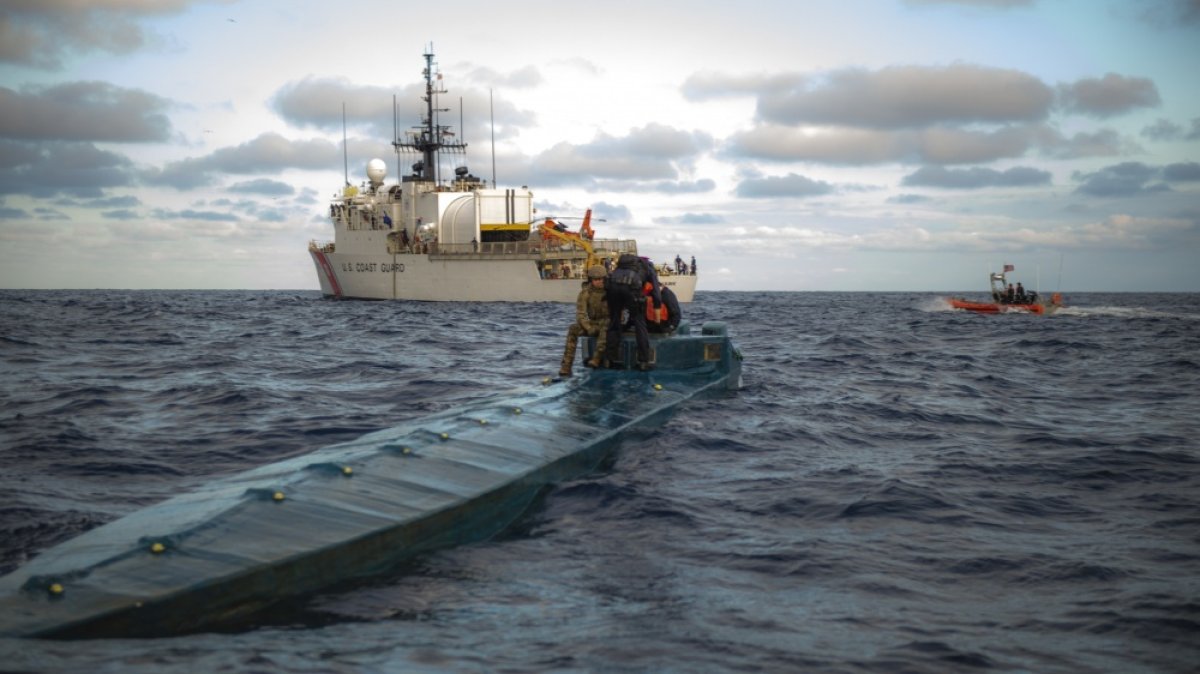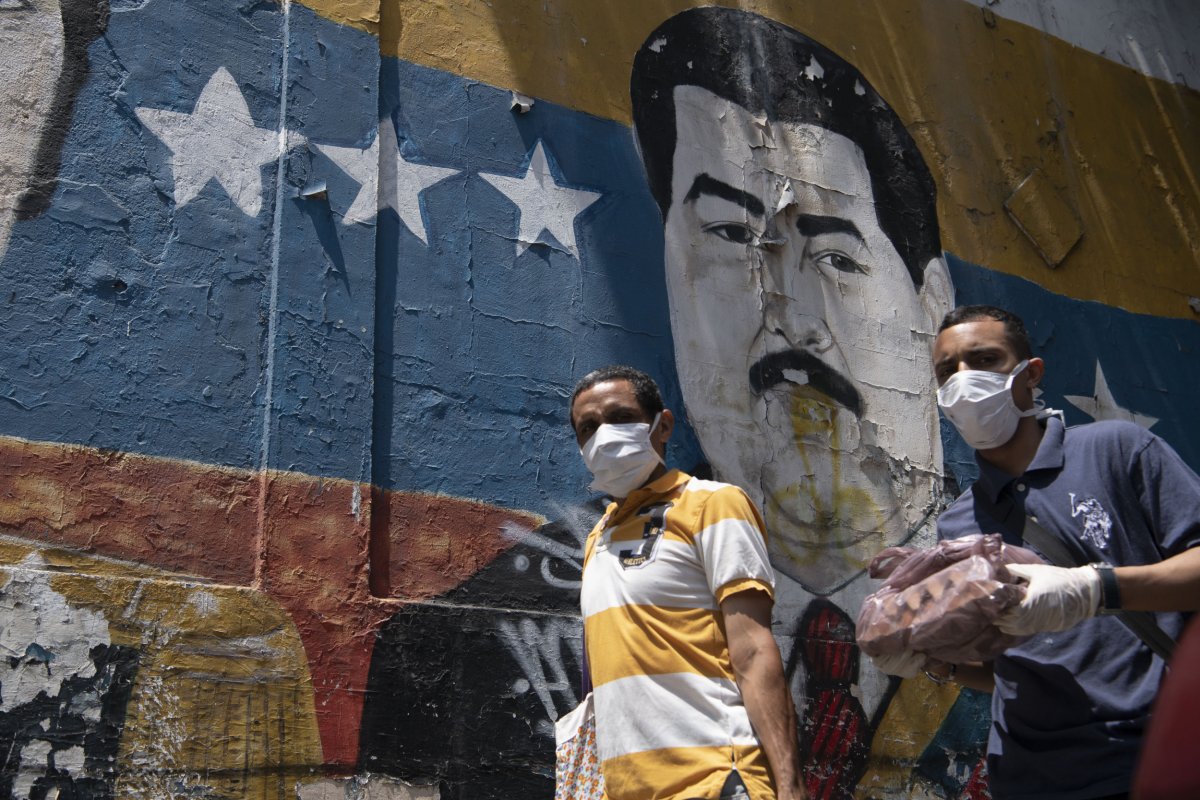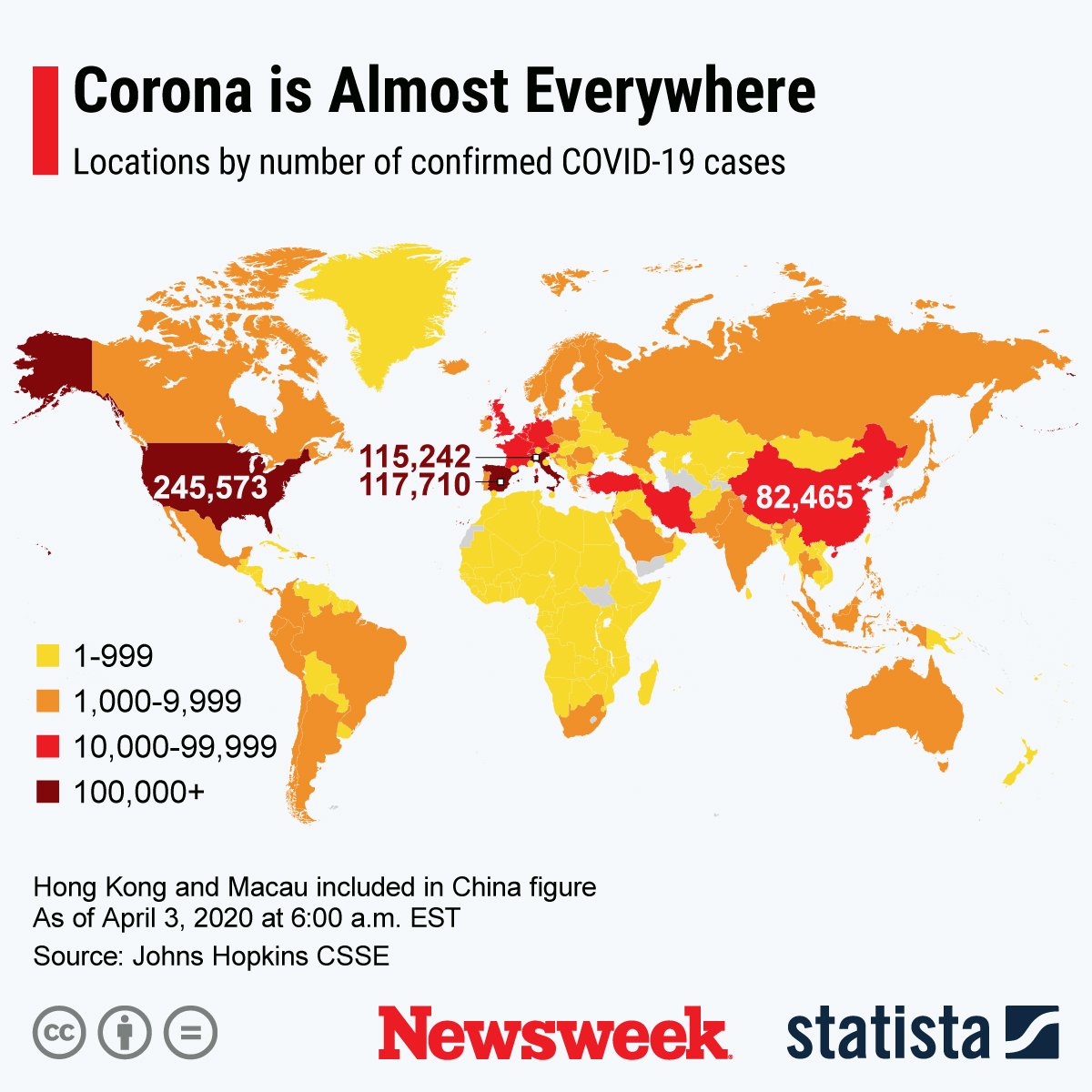President Donald Trump's plan for cracking down on drug traffickers near Venezuela in an apparent attempt to stop the spread of the coronavirus was a mission developed months ago to pressure President Nicolás Maduro and had nothing to do with mitigating the disease, senior U.S. officials told Newsweek.
Wednesday's announcement, they said, was instead a move to deflect criticism about the administration's mishandling of the outbreak at home.
The president's plans to boost anti-drug trade measures date back at least to December, with discussions beginning among military personnel in January, according to a senior Pentagon official. On February 1, the Joint Chiefs of Staff Chair Army General Mark Milley directed U.S. Southern Command to start designing the operation, and SOUTHCOM commander Navy Admiral Craig S. Faller began evaluating the course of action on February 6, as documents seen by Newsweek showed.
"This wasn't supposed to be put in the public until May," the senior Pentagon official who was familiar with the operation told Newsweek. "POTUS is using the operation to attempt to redirect attention."
At a daily briefing held Wednesday by the White House Coronavirus Task Force, Trump, flanked by Defense Secretary Mark Esper and other officials, announced an ambitious, multinational counternarcotics operation involving warships and aircraft of the Navy, Air Force and Coast Guard to the Caribbean in order "to protect the American people from the deadly scourge of illegal narcotics," he said.
"We must not let the drug cartels exploit the pandemic to threaten American lives," the president added.
Esper echoed the commander-in-chief: "As nations around the world shift their focus inward to deal with the coronavirus pandemic, many criminal organizations are attempting to capitalize on the crisis."
By Friday, the White House shifted its messaging. Rather than saying the mission was intended to stop traffickers from exploiting the pandemic, an official linked it to stopping the proliferation of the disease.
"Transnational Criminal Organizations and traffickers are seeking to take advantage of the COVID-19 pandemic by increasing their illicit trade activity, which can contribute to the spread of the virus among diverse groups of people and across vast distances," a senior administration official told Newsweek.
Multiple senior U.S. officials who spoke to Newsweek on the condition of anonymity because they were not authorized to speak publicly about the effort expressed "shock" at this conflation.
The senior Pentagon official told Newsweek that the Venezuelan counternarcotics operation "has nothing to do with the virus."

COVID-19 instances have soared past the 1 million mark worldwide and roughly a quarter of these cases were reported in the U.S., by far the worst-hit country so far. The disease was first recorded late last year in the Chinese city of Wuhan, but quickly spread West, with the U.S. recording its first case on January 20—although Trump as late as February 28 dismissed concerns about the coronavirus as the latest "hoax" concocted by his political opponents.
No confirmed COVID-19 cases were reported throughout Latin America when the initial February 1 planning order was given for the counternarcotics mission, or on February 6 when SOUTHCOM began its own formulations. The first case came on February 26, in Brazil.
Maduro has been targeted by Washington hardliners seeking to oust left-leaning Latin American leaders, and the operation is the latest escalation in the Trump administration's maximum pressure campaign against him. The Justice Department last week indicted Maduro and leading administration officials on narcoterrorism charges, alleging collusion with the insurgent Revolutionary Armed Forces of Colombia (FARC).
Washington cut ties with the socialist leader in January of last year and has since sought to oust him in favor of opposition-controlled National Assembly leader Juan Guaidó, who despite regional support has struggled to maintain momentum while the president retained the backing of the military and various non-state actors, some of whom have been accused of moving and trading narcotics.
Earlier this week, the State Department released a power-sharing plan called the Democratic Transition Framework for Venezuela that did not include Maduro as president but permitted some of his top supporters to retain their positions. Many nations, including Russia and China, still back Maduro from abroad and the United Nations views him as the country's leader.
The senior Pentagon official said that the U.S. Intelligence Community "has evidence that Maduro is trafficking drugs using naval vessels between Venezuela and Cuba," and added that the White House "believes a disruption in drug trafficking will take away a vital funding stream for Maduro, further destabilizing his support both within his regime and among the Venezuelan public, increasing support for Guaidó." A Cuban official denied to Newsweek Havana's involvement in any drug trafficking operations in the region.
"The premise of the operation is a surge against drug trafficking—but when have you ever heard of using that type of force for drugs?" the senior U.S. official said to Newsweek. "The underlying purpose is to pressurize the Maduro regime."
Critics questioned the timing of the announcement and whether it was a proper use of federal resources when the country was scrambling to cope with the disastrous effects the coronavirus was having on human lives and the economy.
Kassandra Frederique, managing director of policy advocacy and campaigns at the Drug Policy Alliance, called the size of the Trump administration's military fleet "an effort to distract Americans from his delayed response to the COVID-19 crisis—which at this point we know will likely cost hundreds of thousands of lives."
"Not only are these actions irresponsible given the current public health crisis we are in, but escalating the international drug war repeats the same misguided military response the U.S. has supported globally, which has harmed and destabilized countries like Colombia, Afghanistan and Mexico—all the while failing to reduce drug supply or drug use," she added in a statement sent to Newsweek.
Frederique argued that "Trump is unnecessarily choosing to double down on the cruel and inhumane international war on drugs, which has already devastated countless communities domestically and abroad," especially at a time when the U.S. needed all the resources, such as personal protective equipment, it could get to battle coronavirus at home.

Former Deputy Assistant Defense Secretary Evelyn Farkas also expressed skepticism. She told Newsweek it was "hard to see these latest deployments of military force as anything other than an attempt to change the conversation from Trump's deadly mismanagement of the coronavirus pandemic."
"I appreciate that our national security and homeland security operations cannot halt due to the current crisis, but it beggars belief that looking holistically at the threats our nation is facing right now, that ramping up narcotics interdiction would be very high on that list," said Farkas, who had oversight responsibility for counternarcotics operations as a Senate Armed Services Committee professional staff member.
"In general, Trump's approach, whether we are talking about the ridiculous wall, child separation, or chauvinistic military operations, has not been based on evidence or expertise to address the real issue of illegal narcotics flowing into our country," she added. "Ultimately, there is a need to respond if hostile actors are taking advantage of COVID-19, but again, there are more pressing threats—we know that Russian and Chinese disinformation is trying to capitalize on COVID-19, yet the President has done little to nothing."
Maduro, too, dismissed the U.S. operation as a bid to change the conversation at home. "The Trump administration, in desperation, has tried to divert media attention to Venezuela. But they could not and will not! The media have turned their attention to the internal crisis that the American people are experiencing due to the Pandemic. We are at Peace!" a statement attributed to the leader read Thursday.
The Venezuelan president faces his own internal crisis with record hyperinflation ravaging an already-wrecked economy and political unrest. Maduro inherited a historic boom in economic growth under his late predecessor, United Socialist Party founder Hugo Chávez, but the country's GDP soon declined, experiencing a brief recovery before plummeting again in 2017, the same year the Trump administration imposed sanctions against the country.
Last month the U.N. High Commissioner for Human Rights Michelle Bachelet called on leading nations to ease sanctions—rather than exert pressure campaigns—on countries such as Venezuela.
"At this crucial time, both for global public health reasons, and to support the rights and lives of millions of people in these countries, sectoral sanctions should be eased or suspended," she said in a March 24 statement. "In a context of global pandemic, impeding medical efforts in one country heightens the risk for all of us."

The above graphics were provided by Statista.
April 14, 2020: This article has been updated to include a Cuban official's denial that the country was involved in any drug trafficking operations in the region.
Uncommon Knowledge
Newsweek is committed to challenging conventional wisdom and finding connections in the search for common ground.
Newsweek is committed to challenging conventional wisdom and finding connections in the search for common ground.
About the writer
Based in his hometown of Staten Island, New York City, Tom O'Connor is an award-winning Senior Writer of Foreign Policy ... Read more
To read how Newsweek uses AI as a newsroom tool, Click here.








